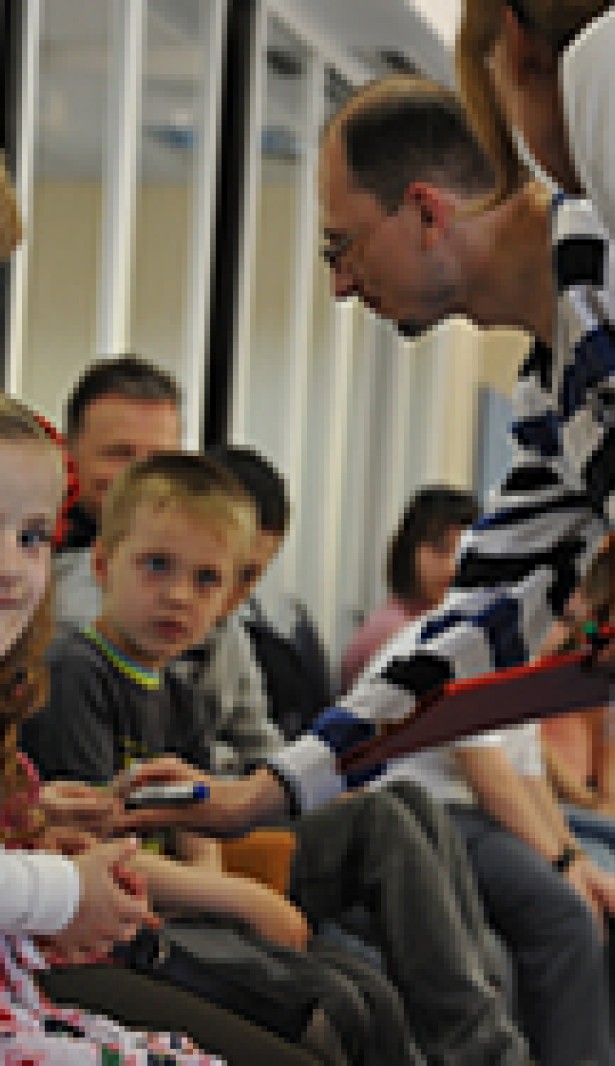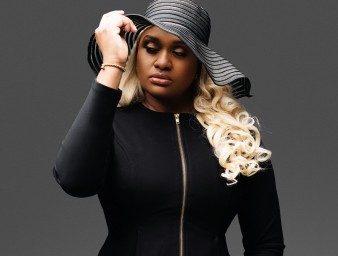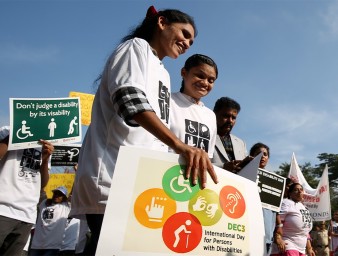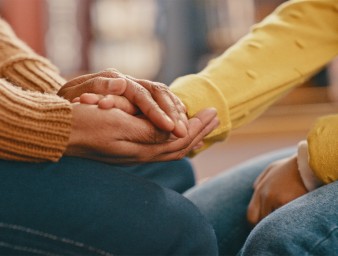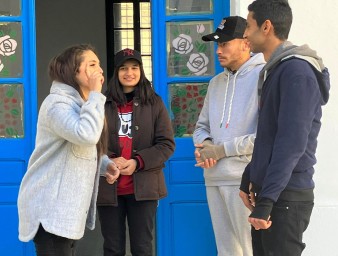Supporting children with disabilities into mainstream schools in Moldova
13 October 2014
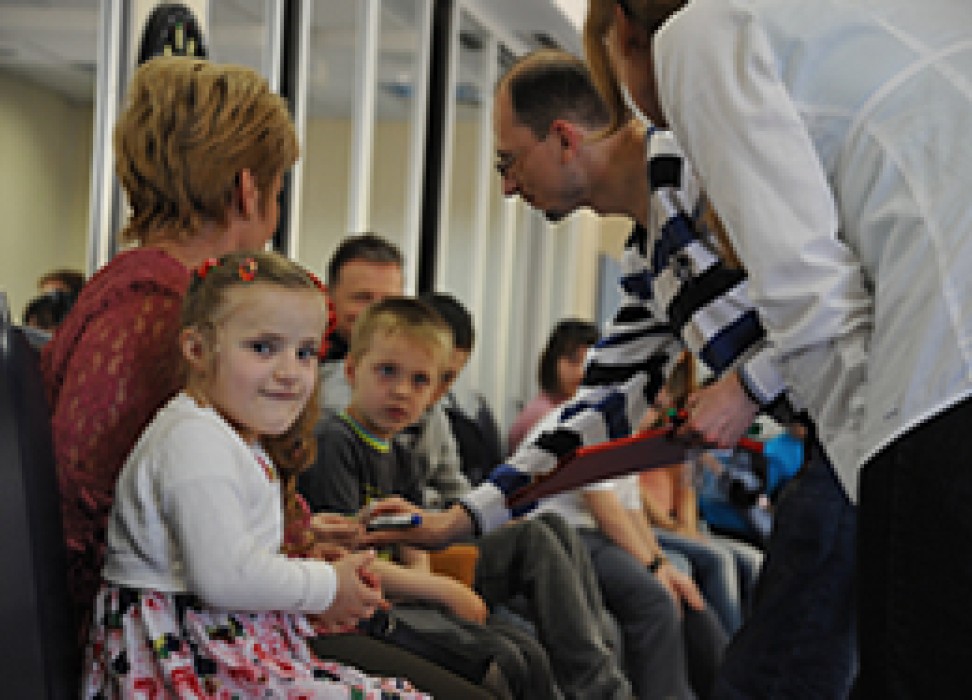
At the first meeting of the network of parents of children with disabilities in Moldova, earlier this year, Ludmila Pavlovschi spoke of the frustration she felt at being denied a place in the mainstream education system for her daughter, Daria.
“I want my child to be integrated in a mainstream kindergarten and have the benefit of a quality education, but, despite the legal framework that supports inclusion of children with disabilities in regular educational institutions and despite all my efforts we have been excluded by the neighborhood kindergartens”, Pavlovschi said.
The UN Human Rights Office, with financial assistance from the European Union, enabled the creation of the network of parents, in May this year, to help achieve inclusive education for their children with disabilities, in conformity with international law.
The human rights team encouraged and supported the activism of the parents and assisted in their advocacy initiatives, including sending petitions to the Ministries of Education; Health; and Labor, Social Protection and Family. The petitions addressed the major issues faced by the children and their parents, including lack of rehabilitation and therapy services for children with autism; the need for a personal assistant as a support service in inclusive education; and access to hygiene products. The team also supported individual cases from within the group in their efforts to find placement in mainstream education.
The efforts of the parents, children and the human rights team have been a success. At the start of the 2014 school year in September, 22 of the children, whose parents are part of the network, were accepted in mainstream kindergartens and schools.
Daria was one of those offered a place.
“Now, my child is happy. She is accepted by her colleagues and they do not see her disability. They see Daria as a talented and friendly girl. My child is fulfilled, as she has friends in the kindergarten and she has the possibility to develop according to her abilities and needs. Every child from our country, regardless of his or her abilities or disabilities, should have the potential to be part of society, beginning with kindergarten. At the same time, every parent should be informed about the right of their child to education in an inclusive environment”, Pavlovschi said.
For those families whose children are now in the regular system, the human rights team also assisted with the process of integration and provided technical guidance to schools to facilitate incorporation of inclusive education principles in the curriculum.
Claude Cahn from the UN Human Rights Office has welcomed the placement of the children in local schools and kindergartens: “Inclusive education of children with disabilities in the Republic of Moldova is now at a crucial stage. The success of the network shows that the advocacy of parents and children can make all the difference. Without their activism, the rights of these children would have remained illusory.”
Cahn says the achievements of the network reflect engagement with a policy framework in Moldova which is increasingly supportive of inclusive education.
The Ministry of Education has developed legal and policy tools to integrate and support children in mainstream environments, including a structure for psycho-pedagogical assistance. At the same time, new anti-discrimination laws have been enacted, which challenge discrimination against children with disabilities, including in the field of education.
12 October 2014
